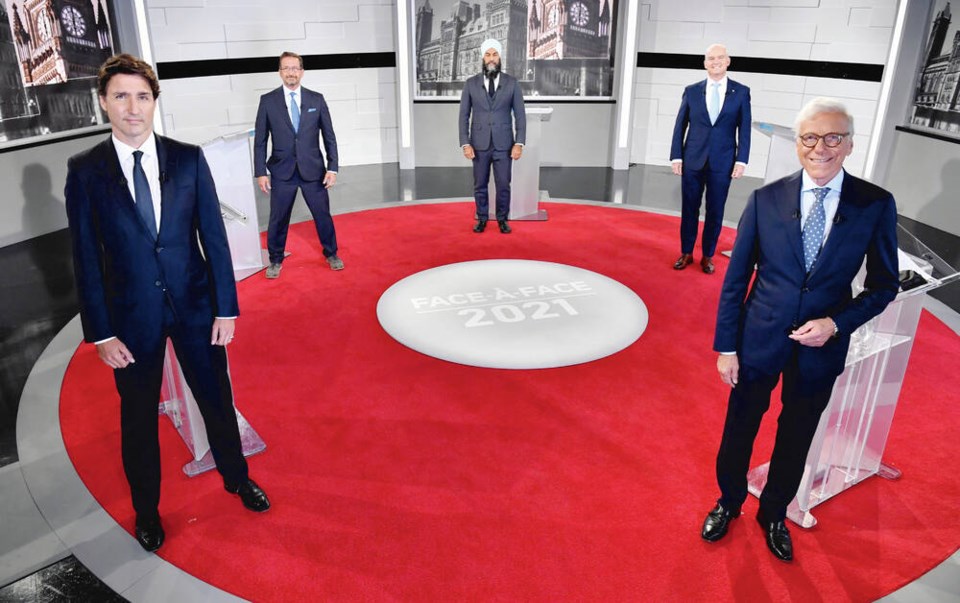This is the second in a series of editorials looking at the leading issues as the Sept. 20 federal election draws near.
Last week we highlighted how the three main parties would deal with the COVID-19 outbreak, now entering a soaring fourth wave.
Today’s piece concerns rebuilding the economy and dealing with massive public debt.
But first, a few notes from the campaign trail. The Liberals began the election with a six-point lead over the Conservatives.
That advantage has disappeared. The Tories now lead the Liberals by between one and three points. The New Democrats have edged up four points, but remain well behind.
This was perhaps to be expected. When the election was called, many Canadians saw it as an act of opportunism.
Prime Minister Justin Trudeau had no difficulty governing as things stood, and the country was in the midst of a pandemic. It was always likely his party would slip in the polls, as this sense of public resentment dominated the early going.
It’s equally possible, however, that when the campaign enters its closing stretch, we may see electors return to their traditional voting patterns.
The second noteworthy development is the shambolic exit from Afghanistan. A recent Angus Reid poll shows that while 41 per cent of Canadians believe the withdrawal went as well as could be, 37 per cent say it was a failure, and 20 per cent say it is too soon to tell.
While Canada bears no responsibility for how the exit was conducted, if it emerges there are Canadians stranded behind enemy lines, that may yet play a role in the election.
So how do the parties propose restraining burgeoning debt levels and rebuilding the economy?
Neither the Liberals nor the NDP have taken clear positions on the first of these questions — managing debt and deficit levels. The Liberals have segued away from the issue to concentrate instead on offering more financial aid to groups in need.
The NDP have said they will balance the budget “when it is fiscally prudent to do so.”
The Conservative position is that spending must be cut back, and the budget balanced within 10 years. But no details are offered on how this might be accomplished.
A fair conclusion would be that we have years of deficit spending ahead of us, and none of the national leaders knows what to do about it. It may take rising interest rates to bring an air of seriousness to this matter.
What about rebuilding the economy? The impression here, likewise, is that none of the parties truly knows how to do this.
Conservative leader Erin O’Toole has promised to pause the GST during December to boost Christmas sales, and build one million houses over three years.
The first of these sounds distinctly like a gimmick. O’Toole gave no details on how he would accomplish the second.
The Liberals are primarily focused on issues such as global warming and health care. Their economic proposals tend toward vague notions such as “bring all businesses along to recovery” and “creating opportunities for everyone.”
The NDP likewise are concerned mainly with social programs. The party sees economic policy principally from the standpoint of resetting the balance between rich and poor.
Some of this inability to offer viable options for rescuing the economy may be due to the nearly unprecedented nature of the COVID crisis. Some is due to events beyond the control of governments, such as disruptions in supply chains.
Nevertheless, in a recent poll, most respondents said this election was more important than the 2019 vote, and 40 per cent believed there was “a lot at stake.”
Handing out goodies from a seemingly bottomless bag, as the two left-of-centre parties are doing, is the shortest of short-term strategies. Making promises in hazy and vacuous language, as the Conservatives are doing, is a mark of desperation.
We can only hope that as the campaign progresses, firmer and more realistic proposals will emerge.



